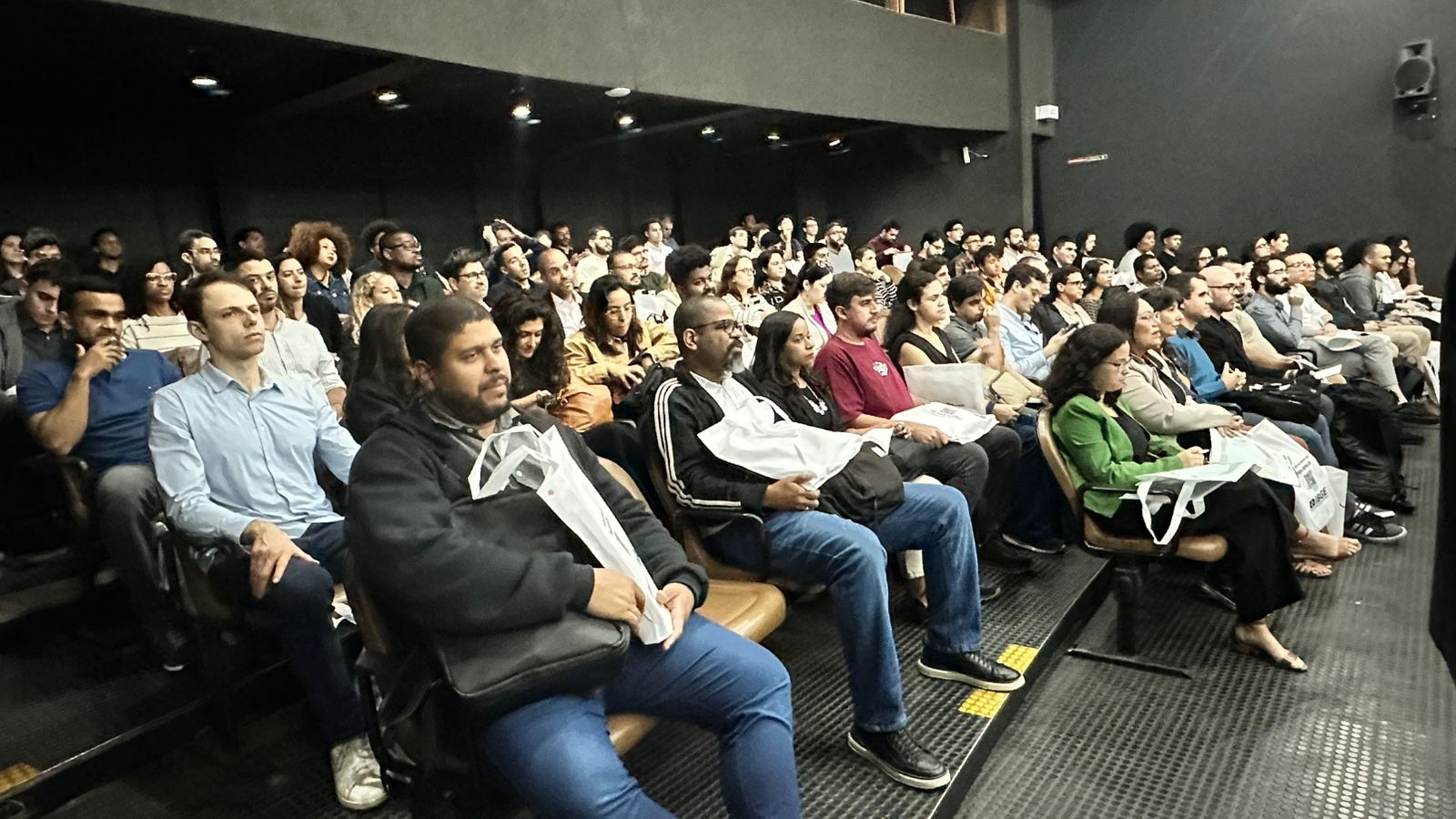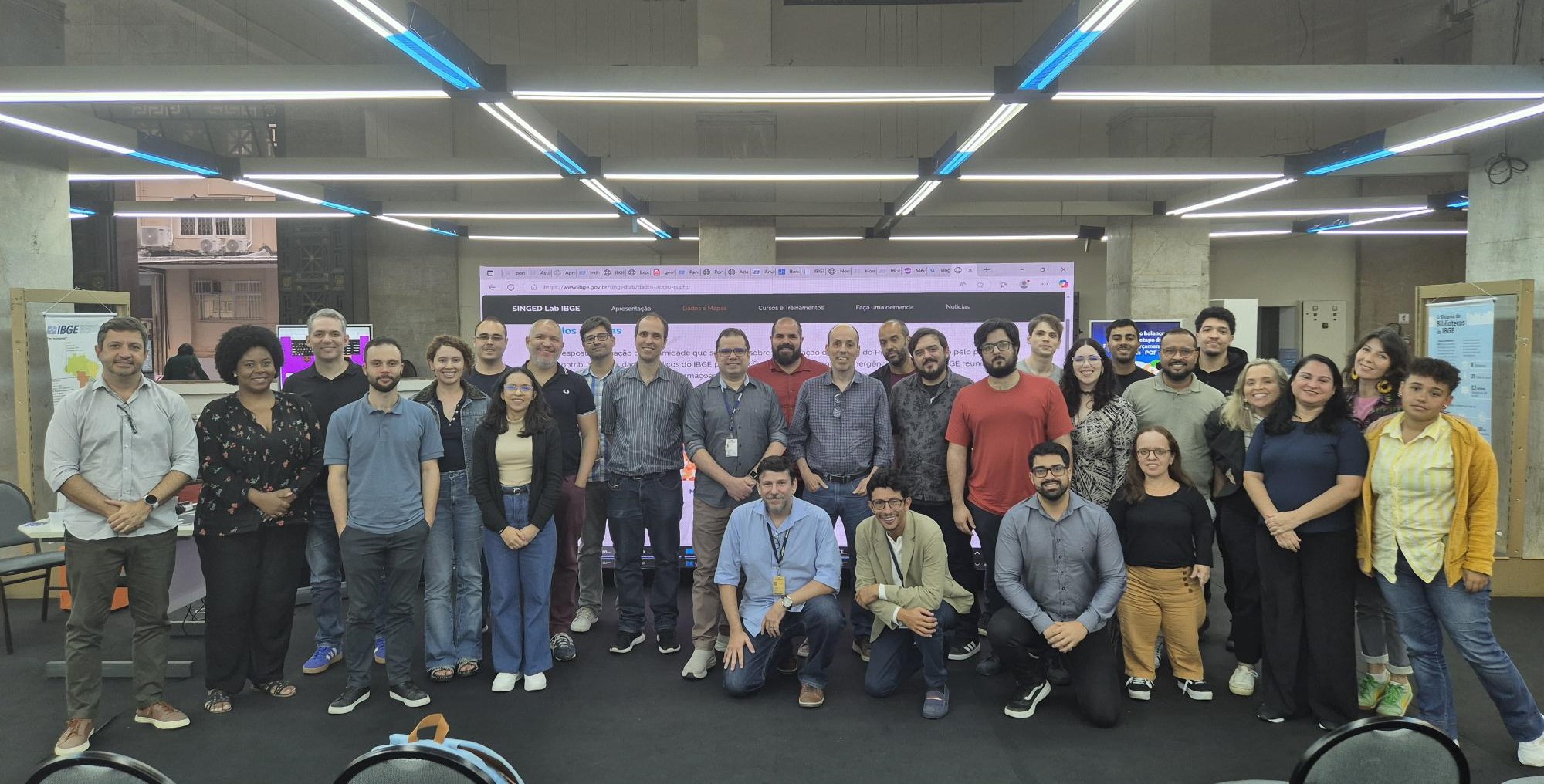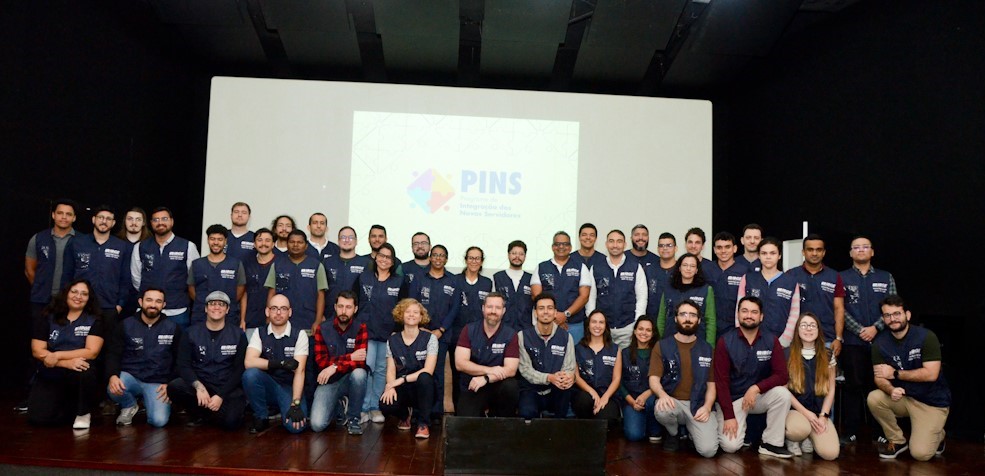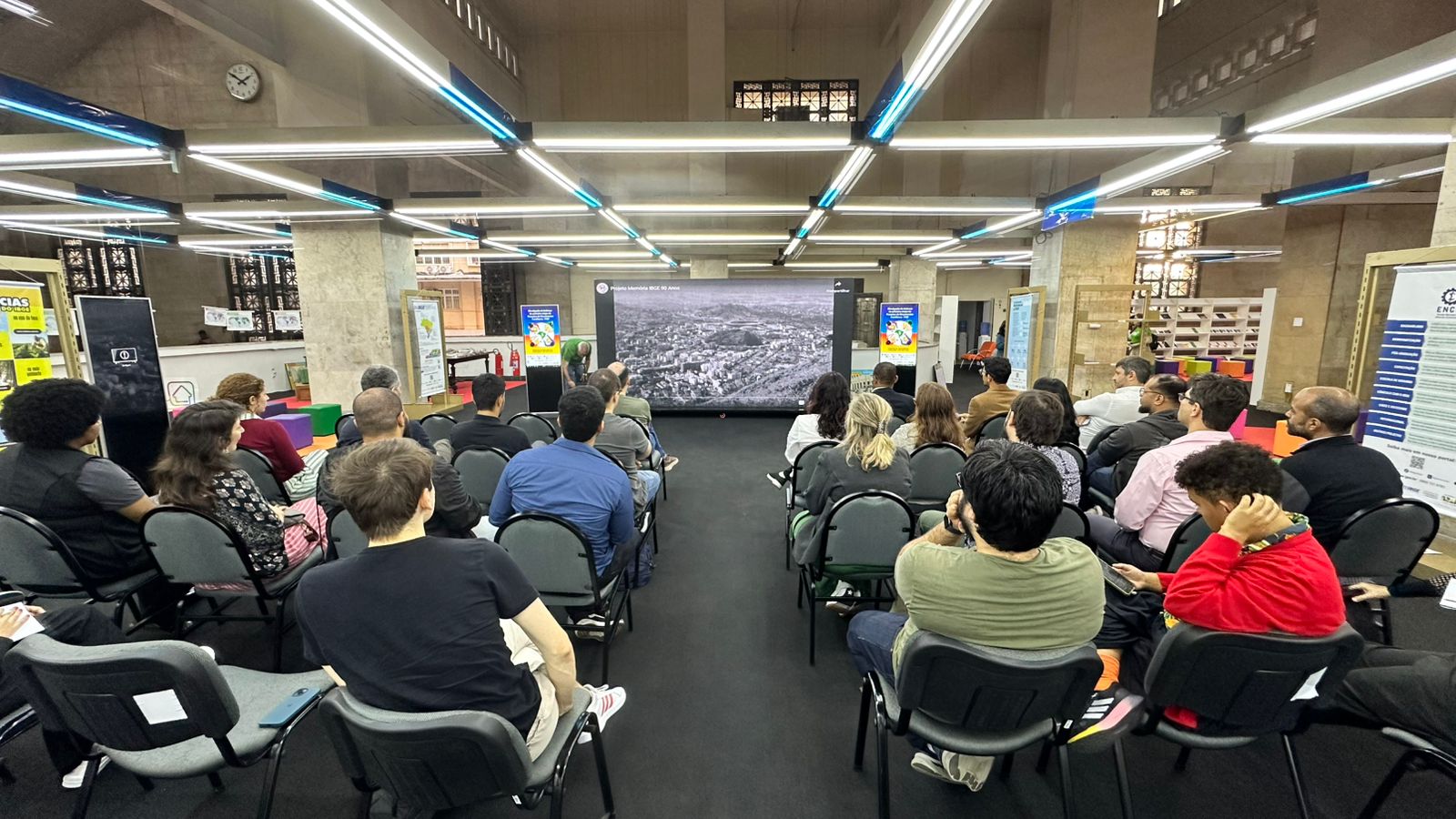A new cycle at the IBGE: staff expansion and institutional advances
July 17, 2025 08h55 PM | Last Updated: July 22, 2025 04h38 PM
After facing the gradual loss of its permanent staff for almost ten years, the IBGE has started receiving new employees selected by means of the biggest competitive examination conducted by the Institute in its almost 90 years of existence. It was also the lowest cost competition for IBGE and the most competitive one, with a high candidate/vacancy ratio: approximately 45% of the total applicants for the Unified National Competition trying to join the IBGE, whose vacancies amounted to 13% of the total in the test.

In addition to the arrival of new employees, it is worth mentioning the systematic effort to strengthen and modernize the Institute. On the one hand, there was the salary adjustment, a result of civil servants' demands: between 2018 and 2022, there was no adjustment, despite the cumulative inflation of 32.7%. From 2023 to 2025, however, adjustment reached 20.7%, with cumulative inflation at 12.4%, and a further round already scheduled for 2026.
For temporary employees—who also had no nominal salary rises between 2018 and 2022— the increase from 2023 to 2025 was significant. For Survey and Mapping Agents (APMs), for example, the increase reached 93.2%. There was also a recent increase in the value of the food allowance.
In terms of institutional strengthening, the budget adjustment for surveys stands out. By 2025, the volume of public resources allocated to this area will be 2.6 times greater than in 2022, when the budget was only R$85 million—one of the lowest ever observed in the history of the IBGE.
It is also worth highlighting the efforts made by the current administration to improve the use of investments, having as a priority actions such as building and equipment maintenance, among other important initiatives carried out over the last two years.
Simultaneously, the institutional modernization movement is advancing, with three fronts of action that seek to position the IBGE in a society undergoing fast digital transformation.
The first front focuses on strengthening the institution's capacity to operate with large volumes of data, in addition to its already robust statistical and geoscientific production. Through the development of the National System of Geosciences, Statistics, and Data (SINGED), the National Statistical and Geoscientific Intelligence and Governance Program is being implemented, aimed at supporting predictive public policies. Partnerships are already underway with federal public data-producing institutions and with Serpro, the biggest public data processing company in the country.
As a result, the IBGE has advanced in the construction of new surveys on an experimental basis, deepening the integration of databases and administrative records.
At the same time, it is necessary to consider the Census of Agriculture, Forestry, and Aquaculture, as well as the 2030 Population Census. Preparation in advance paves the way for methodological and operational innovations that need to be tested beforehand and carefully.
Another relevant point is the working groups formed by the staff of the Institute, which have been dedicated to formulating guidelines for an innovation policy and the sovereign use of Artificial Intelligence.
Finally, it is worth highlighting the internal initiatives aimed at expanding the field of Data Science at the IBGE —a strategic front that builds on the institution's already recognized technical expertise, focusing on the integrated use of multiple sources of information and images.
In this context of optimism and the advancement of so many innovative projects, the IBGE welcomes its new employees with the highest possible expectations, so they can bring their knowledge and experience to the institution's best practices.

According to the Director of Geosciences, Maria do Carmo Bueno, "the arrival of new staff is always a reason for joy! New people bring energy and fresh ideas, as well as enthusiasm.
This blend of new people with the institution's current staff is what makes the institution grow and transform. Together, we will build a more diverse team, prepared to face challenges."
In the Directorate of Surveys, the feeling is very similar. The deputy Director of Surveys Vladimir Gonçalves Miranda notes that "the new staff were welcomed with great joy and anticipation by the teams who prepared a day of activities to begin the integration process. We hope they will feel very welcomed, motivated, and bring new knowledge and ideas to deal with the challenges our institution is facing."

The success of the unified competitive examination marks the beginning of the IBGE staff restructuring, not only to maintain existing activities but also to facilitate innovative projects. In the Executive Directorate, Director Flavia Vinhaes and Deputy Director Rose Mary Rodrigues emphasize that "the arrival of new members to the work teams always brings renewed energy to everyone, as they bring with them their previous experiences and expectations, enabling a connection with the experienced IBGE staff. This exchange is essential for us to continue developing our activities, without ever losing sight of the IBGE's mission."
This perception is also shared by the Information Technology Directorate. "The arrival of new employees is a reason for celebration because the demand for technology is essential for the execution of all the activities performed by the IBGE. Databases, applications and systems, networks, secure access, laptops, desktops, DMCs, Wi-Fi, tokens, all types of programs, production of statistical and geoscientific surveys, administrative and educational systems— all of them will benefit from the arrival of these colleagues. With this expansion, we aim to provide better services, despite knowing that the demand is greater than we managed to meet in this competition," explains the deputy director, Arnaldo Lyrio Barreto.
Regarding the National School of Statistical Sciences (ENCE), the general coordinator emphasizes: "The coming of new staff will strengthen strategic areas of teaching, research, and management, ensuring the academic and institutional excellence that characterizes ENCE. The restructuring of the staff contributes to the renewal of ideas, the exchange of experiences, and the strengthening of our mission, meeting the demands of the academic community and of the public administration for training and scientific production aligned with contemporary challenges. The integration of these new employees is essential to allow them to contribute by sharing their knowledge and skills for the development of ENCE and of the IBGE as a whole."

All over the country, new civil servants from the Unified National Competitive Examination are receiving initial guidance and information through the New Civil Servant Integration Program, held at IBGE branches of its headquarters in Rio de Janeiro and in all the states in Brazil.
All of this demonstrates that the IBGE remains dynamic, committed to valuing its employees and promoting innovation on various fronts. The institutional expertise acquired over decades continues to be the foundation on which modernization is built. It is this foundation that allows IBGE to fulfill its mission of providing, with excellence, portraits of the Brazilian population and territory that add to the development of public policies in the country.




















